Freeze Warning
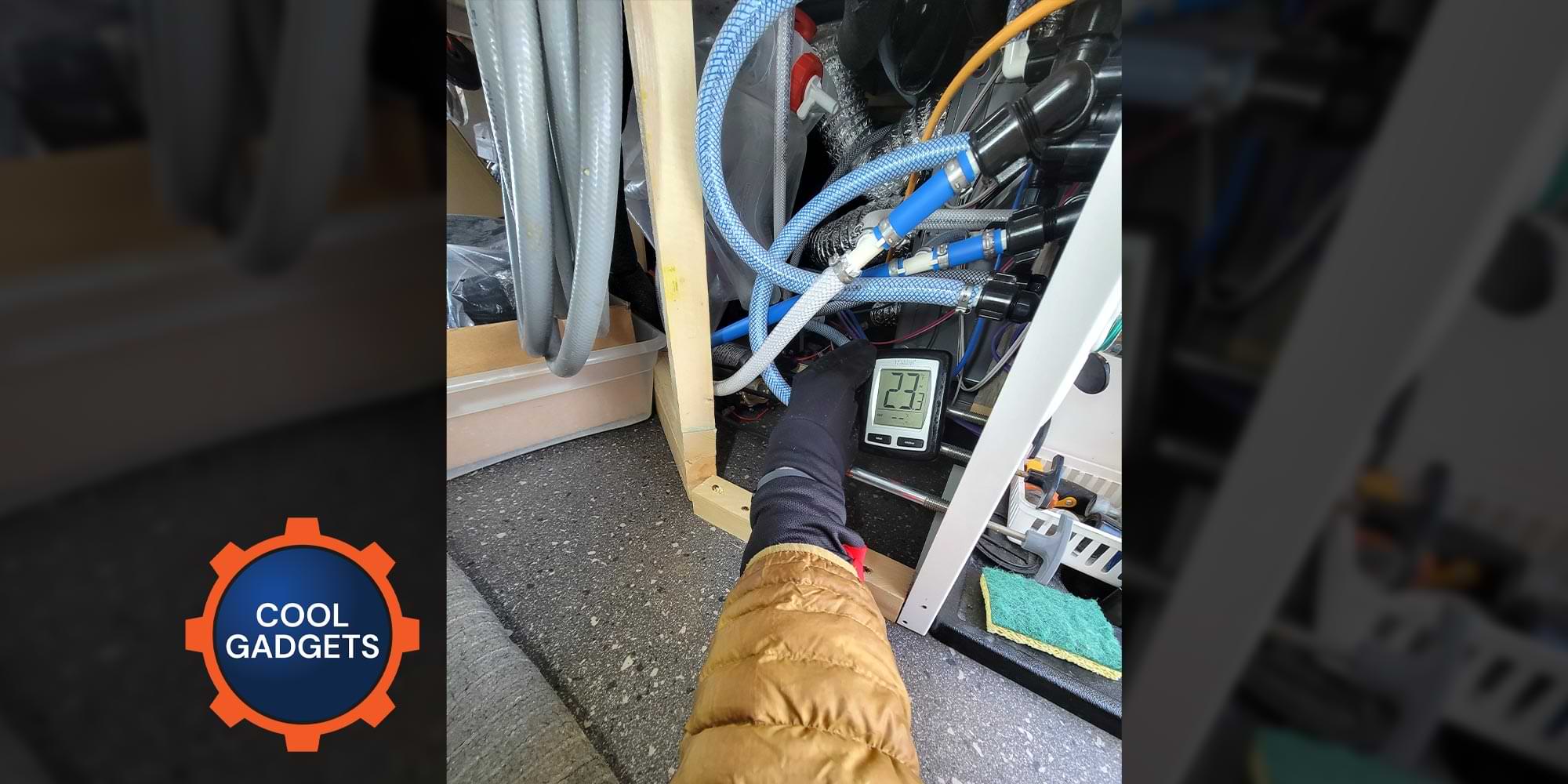
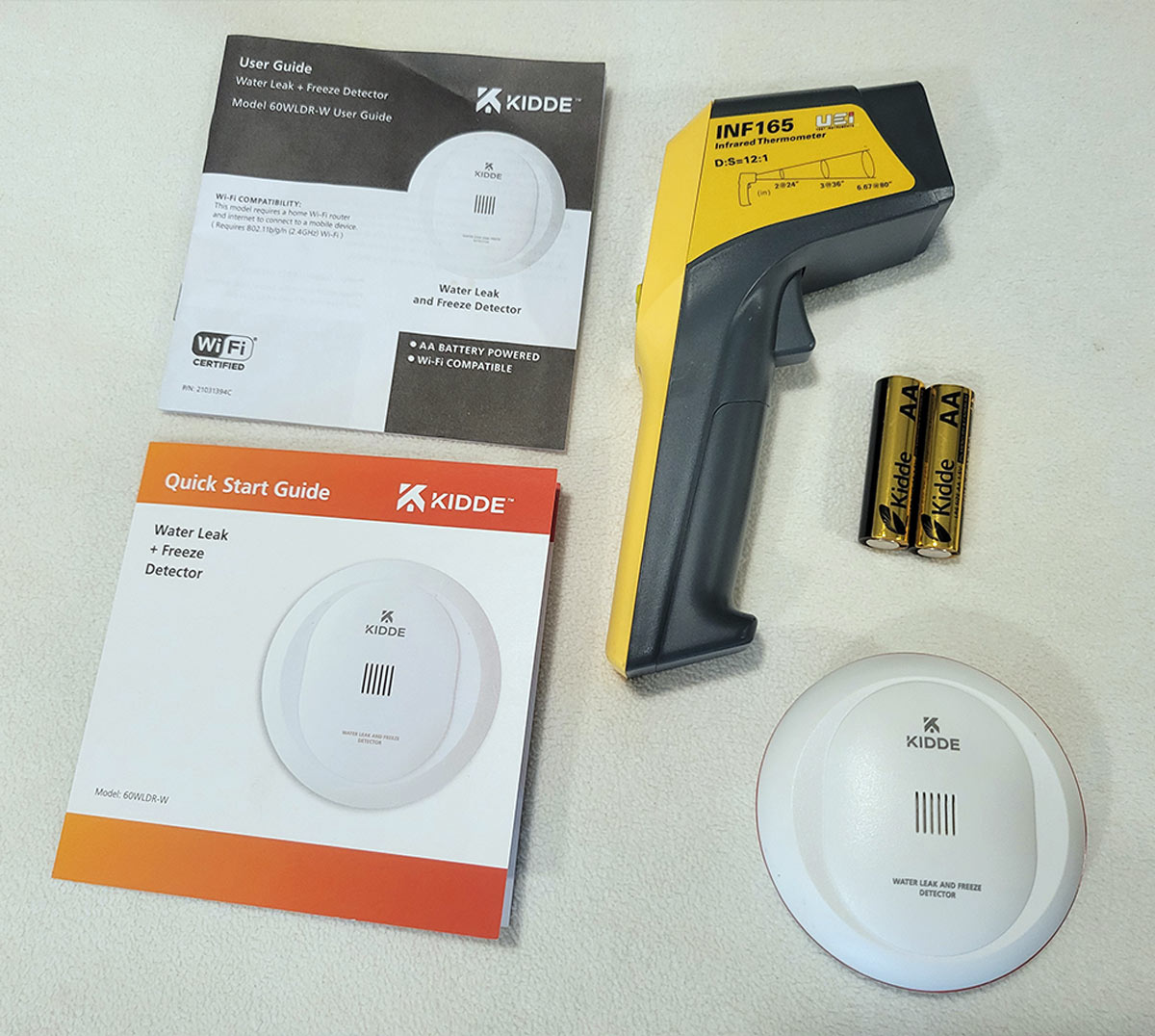
The Kidde freeze and water detector is a compact unit that operates on two alkaline AA batteries, which should last around one year of normal use. I dug out my temperature gun to help with testing of the freeze detection component.
While I use wireless probes in exposed areas to monitor temperature, I wanted a device to sound an alarm before the area was subject to freeze-ups. In today’s world there are specialty devices for just about everything, so I was not surprised to find one made by Kidde, a well-known company that markets smoke and carbon monoxide detectors. This product, interestingly, also monitors the surrounding area for water leaks. The device can be found on Amazon by searching “Kidde WiFi Water Leak Detector & Freeze Alarm Alexa Device, Smart Leak Detector for Home with App Alerts, White.” It’s available on the Kidde storefront and other websites with prices starting at less than $30.
Since my main concern was to detect frozen water lines, the leak detection component was secondary; nice to have but there are dozens of such devices on the market, including the Govee H5054 sensors — also purchased on Amazon — that were featured recently in an RVExpert newsletter (if you missed it, read “Water World”).
The Kidde freeze detector operates on two supplied AA alkaline batteries (which should last around a year) and will sound an 85-db alarm when the temperature drops to 37 degrees F, or during a rapid decrease in temperature. The company prohibits the use of lithium batteries.
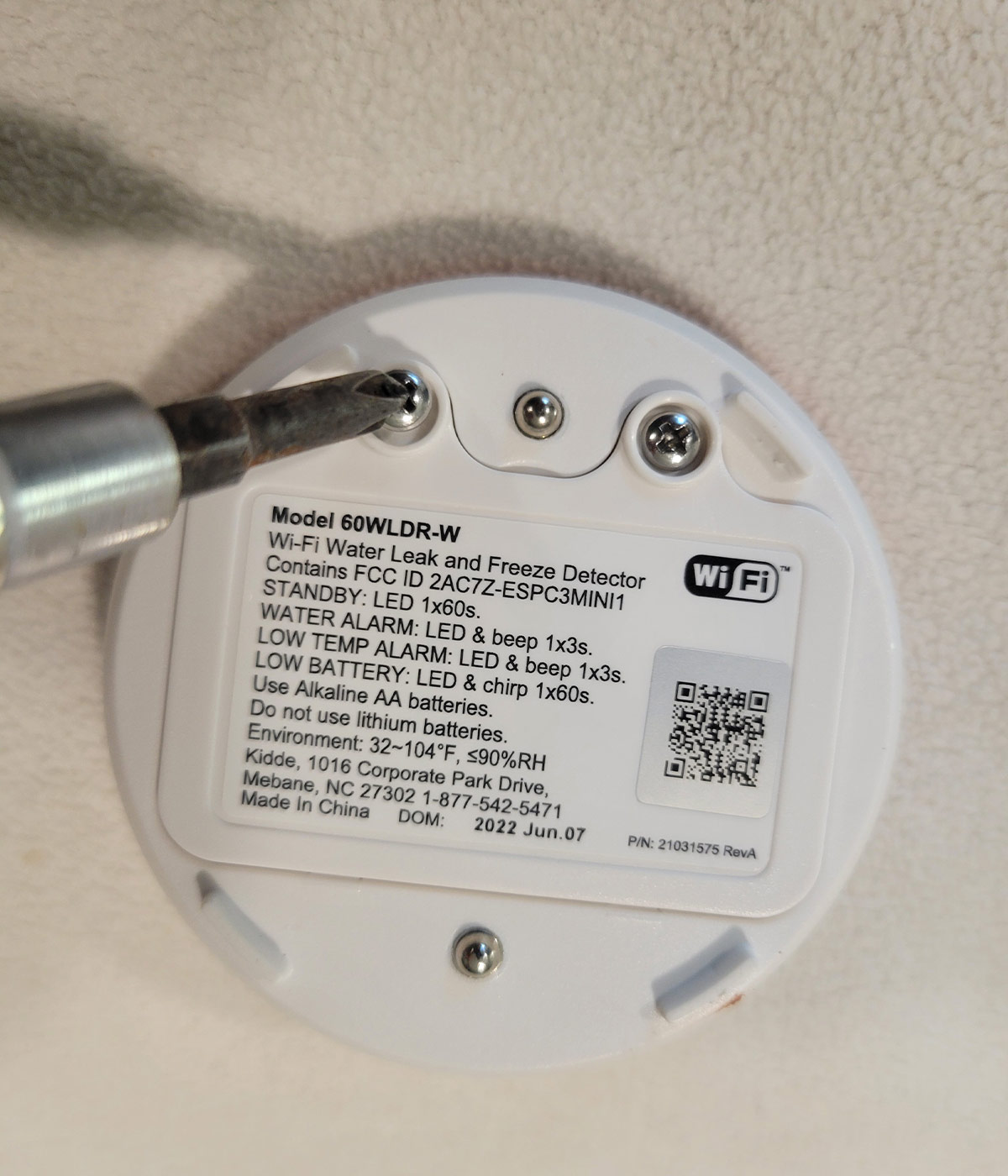
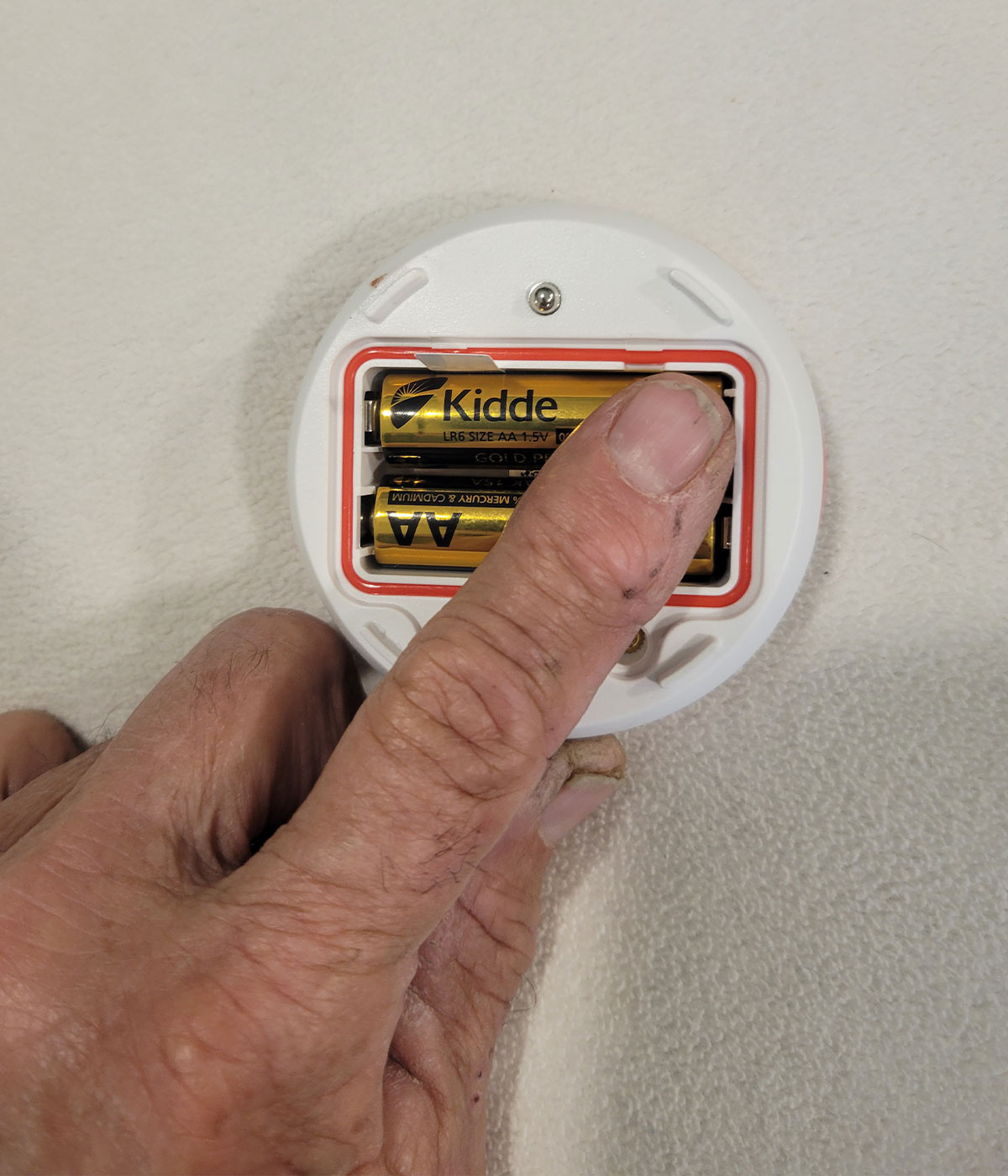
There is no installation requirement other than to set the device in areas susceptible to freeze damage. In my fifth wheel, the logical location was in the vicinity of the central water system that was plumbed with several valves and a spaghetti-type mass of water lines running in multiple directions. I had to remove the divider wall in the front storage compartment to gain access to the area. The compartment is right below the bedroom, so I knew that I would hear it, but it’s really loud enough to be heard anywhere in the fifth wheel. Since the device is Wi-Fi enabled, an alert during a freezing/water leak incident can also be viewed on a smartphone (iPhone or Android). All you do is download the App and set up the communications using the QR code on the back of the device. Keep in mind you’ll need Internet service to make this work, but it’s a great feature when leaving the RV unattended.
I tested the freeze protection capability by following the suggestions in the short owner’s manual. The device was placed in a shallow dinner plate with a little bit of water, and it didn’t take long before the alarm sounded. Next, I placed the device in the freezer compartment, and in short order the device started to blare the alarm.
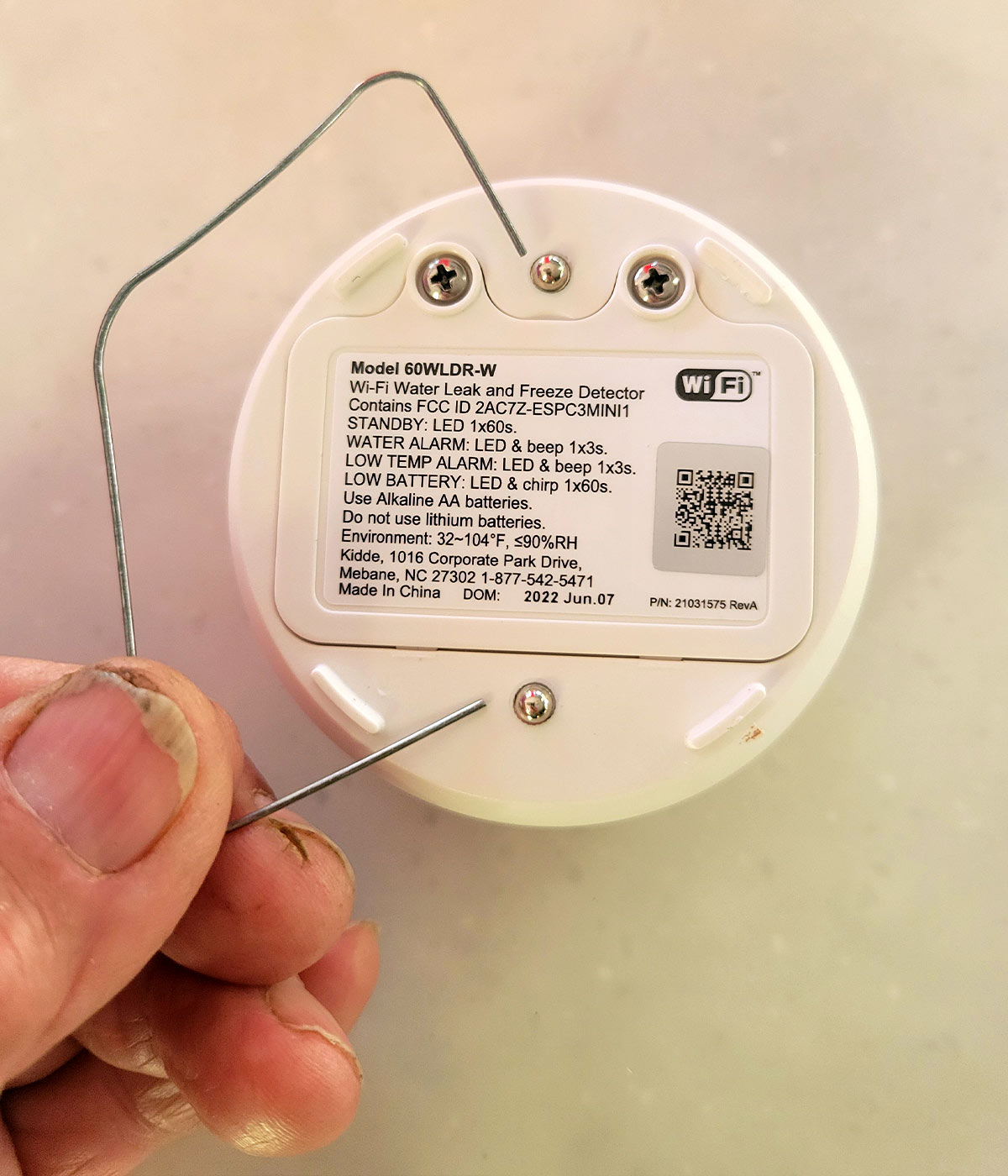
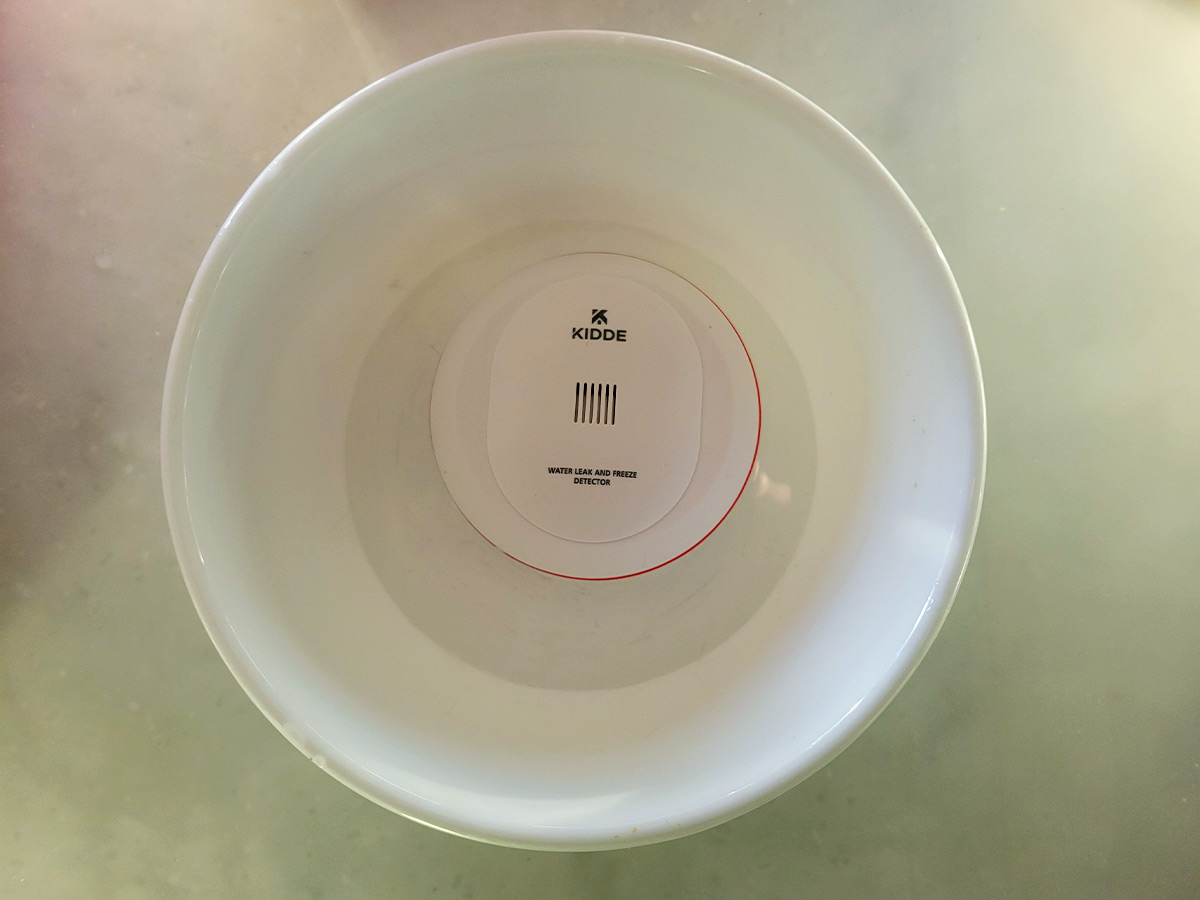
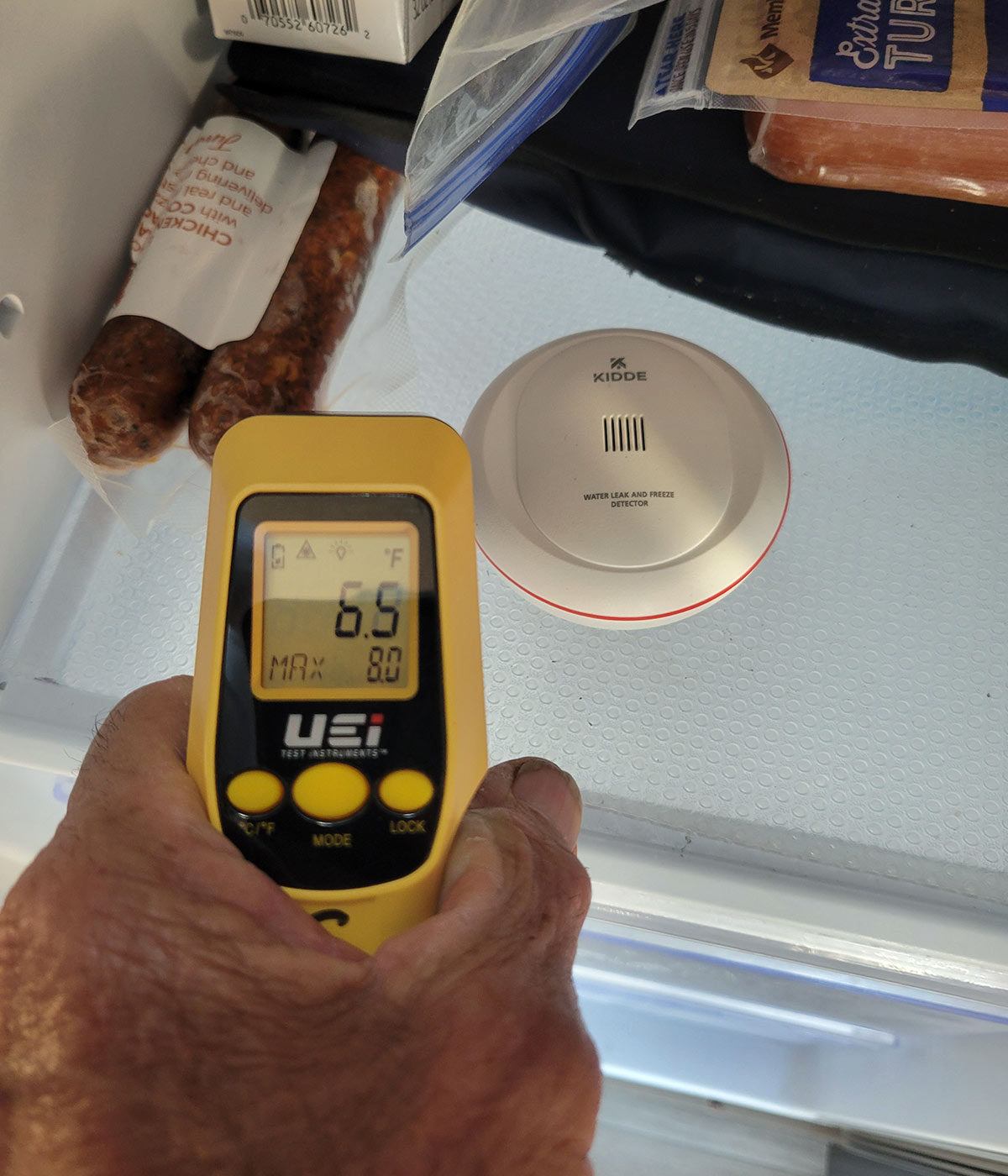
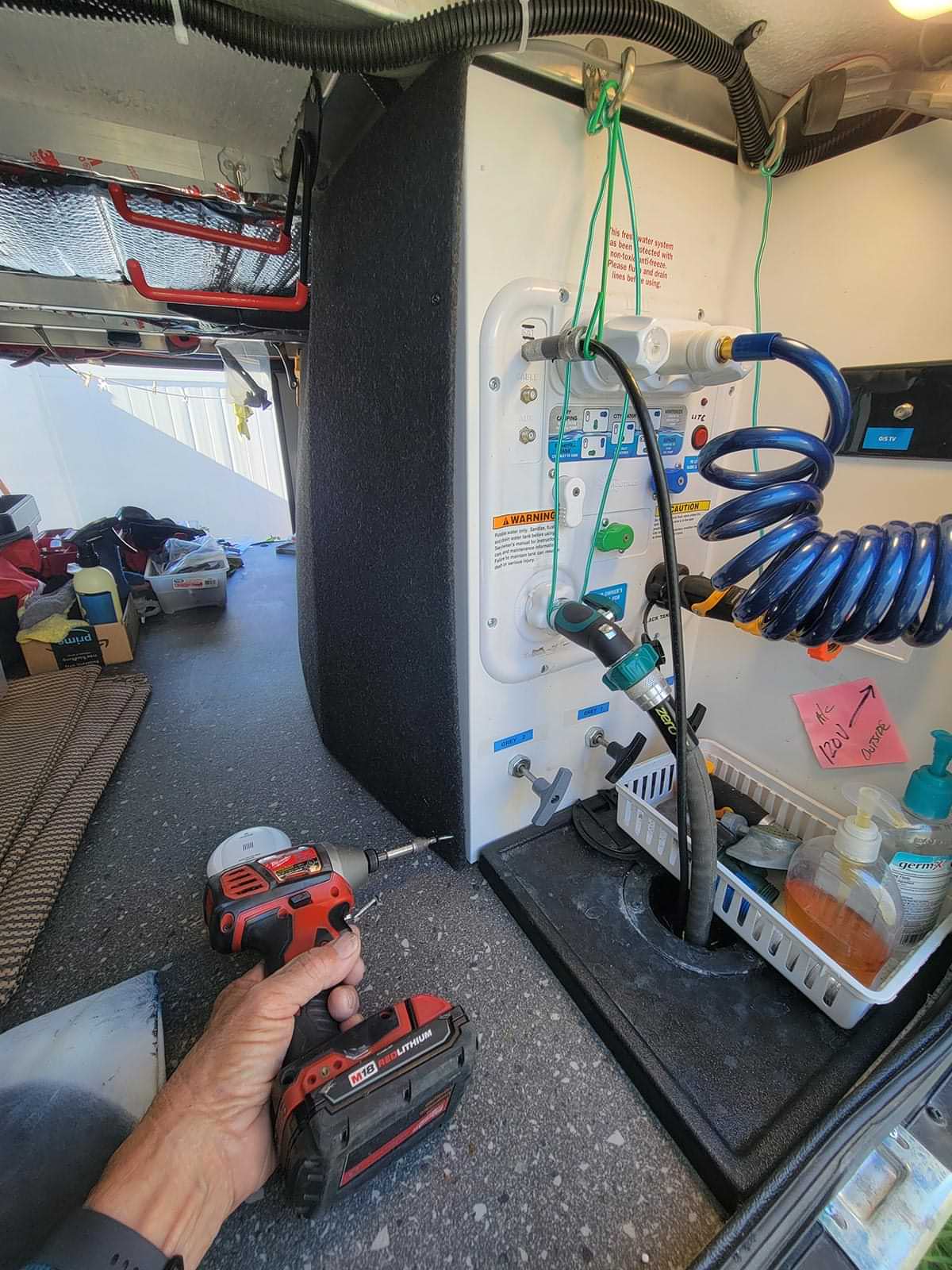
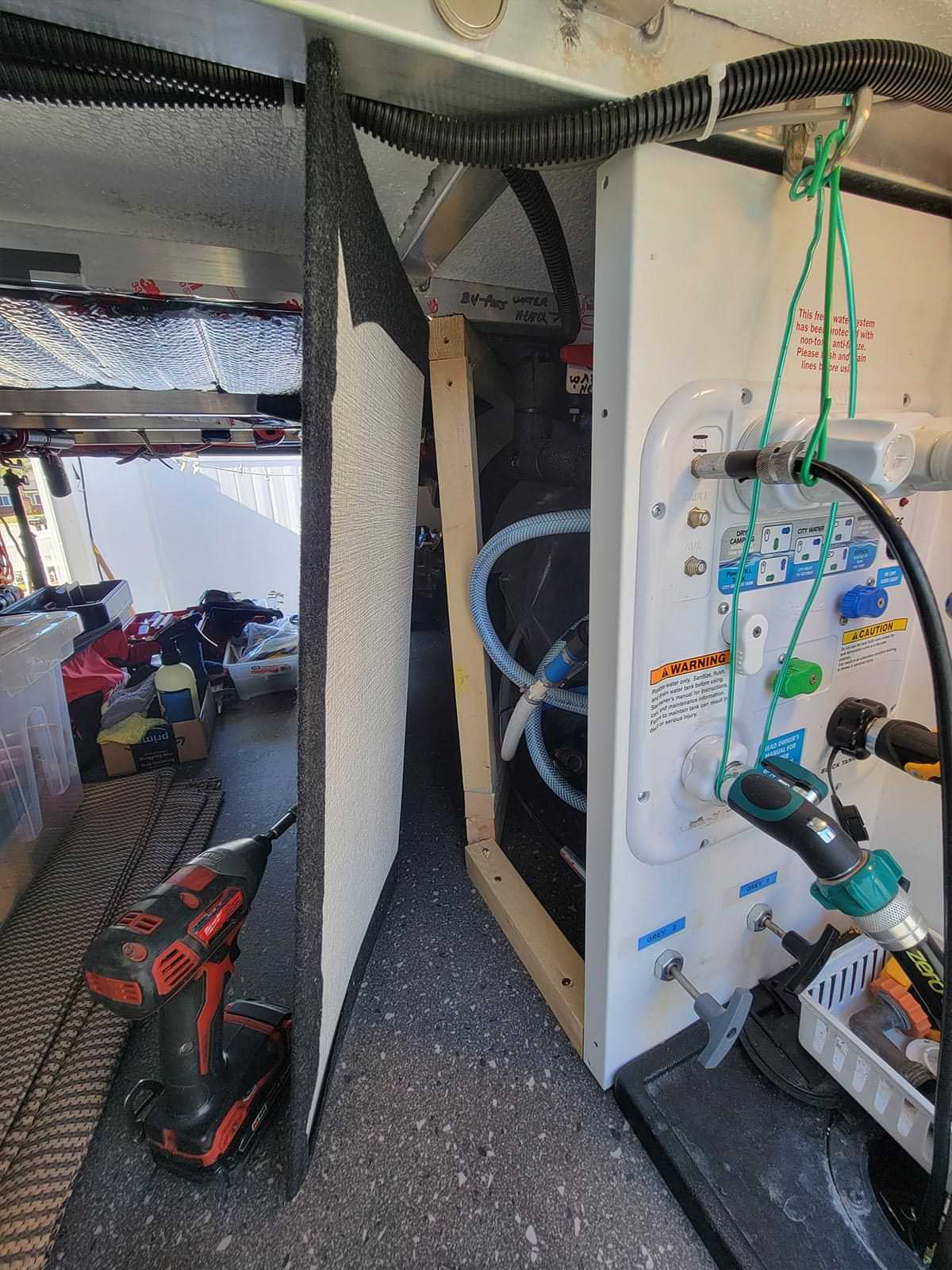
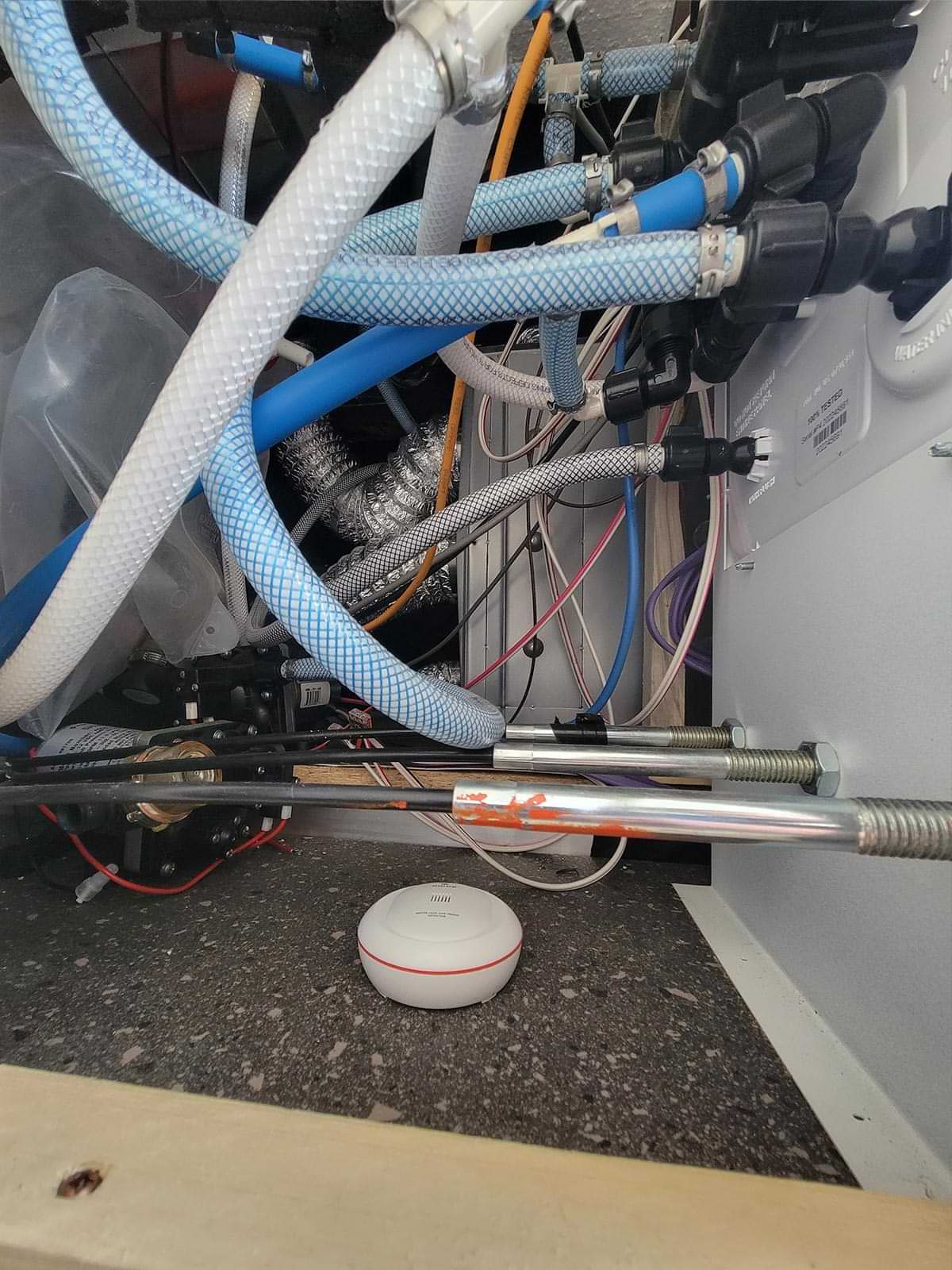
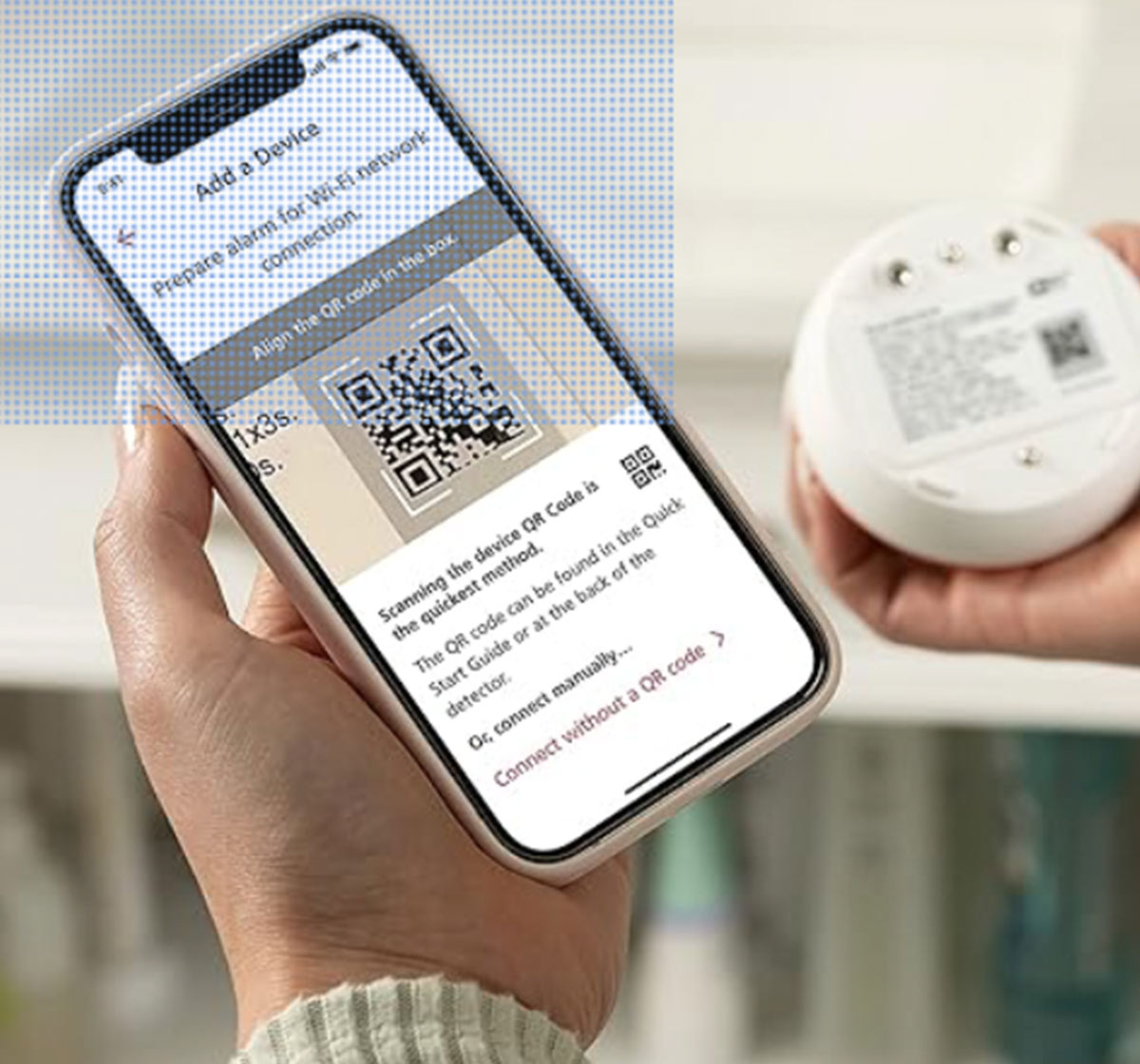
Already a Subscriber? Click here for Access to the Full Issues.

